Millennial Lotería: From an art project to becoming a sold out game in Target
Mike Alfaro spoke with Diego Pineda about how he was inspired to create Millennial Lotería, a modern version of the classic game
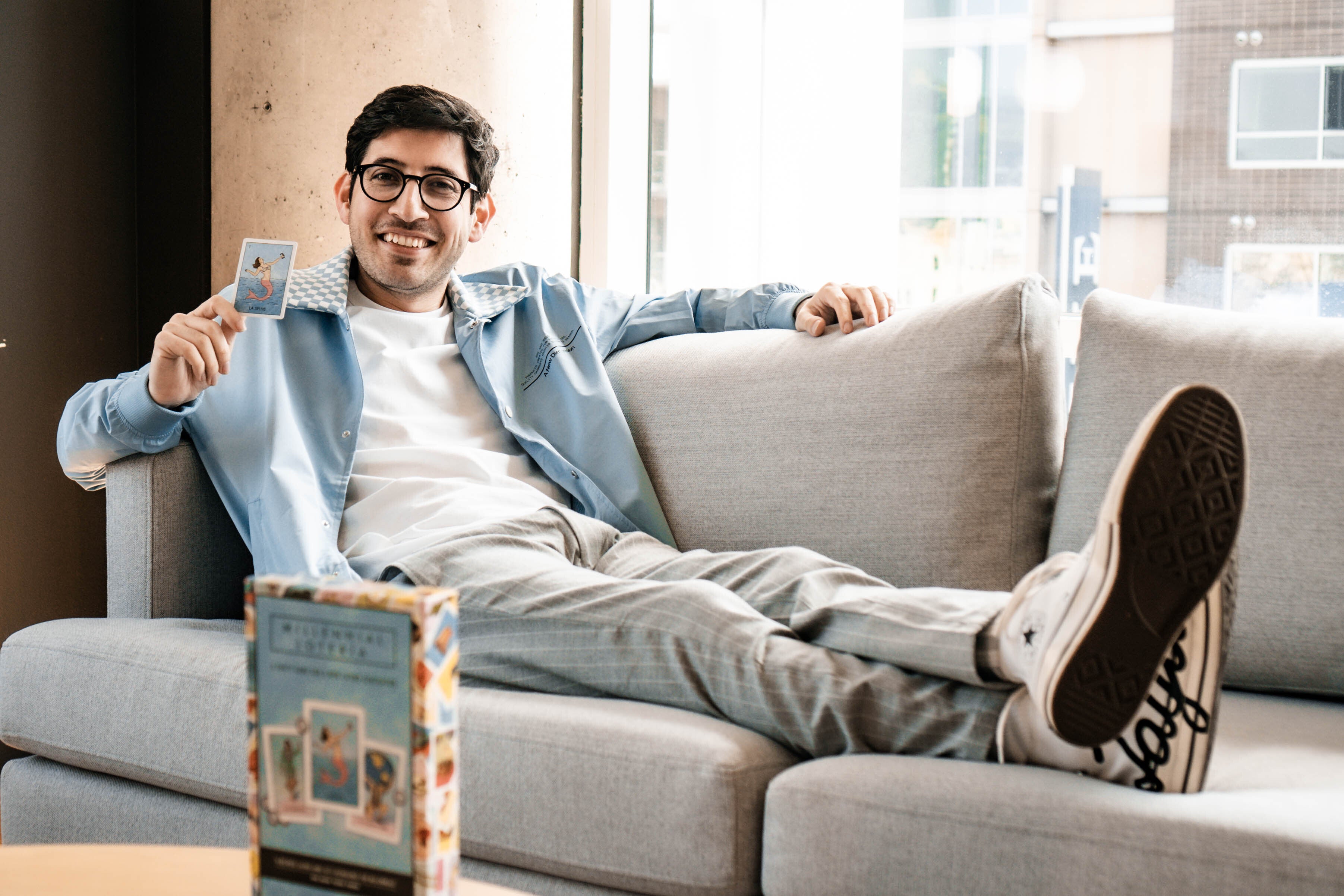
When Mike Alfaro came to the United States from Guatemala in 2006 for school, all he had was his backpack and a suitcase. One of the first stores he visited to buy basic supplies for a college student and their dorm was Target. The moment he walked inside, he says it did not feel right—he did not feel at home.
Today, Target is a store that holds a special place for Alfaro. Not only because it was one of the first American stores he ever visited, but because it is one of the stores where his game Millennial Lotería, a remake of the classic game, is sold out.
“I hope that now when new people come to the United States and one day go to a Target, and they see the Lotería they can think that they too belong to the culture here,” Alfaro said.
The traditional Lotería card game that Alfaro’s is based on is often referred to as Mexican bingo, and is a staple for many Latinx/Hispanic homes. It has an extensive history with roots dating back to Italy during the 15th century. Since then, many versions and remakes have been created throughout the years. The famous Don Clemente Lotería has become the most popular to date. It is played similar to bingo, but the cards on the deck and the boards are images that range from cultural and historical icons to instruments, plants, animals and fruits.

Alfaro was inspired to make his version of the game when he came across the Lotería he used to play with as a kid.
“I noticed that the images didn’t represent the modern Latino culture or young Millennials,” Alfaro said. “This began as an art project where I wanted to express what I felt and didn’t see. A modern representation of immigrants in the United States.”
Therefore, in 2017, he decided to redesign some classic Lotería cards with the help of his friend Gerardo Guillén, the current art director of Millennial Lotería. Their initial idea was to create an Instagram page where they posted updated cards of the game in Spanglish. “La dama” turned into “la feminist”, “el catrin” into “el hipster” and “la sirena” into “la selfie.”
“The images didn’t change much from the original version because I wanted there to be that nostalgia from the game we played growing up, but with a modern touch,” Alfaro said.
The simple Instagram posts that were at first supposed to be a fun art project quickly began to gain traction from Alfaro’s followers.
“We started getting messages like ‘hey, is this a real thing? Where can I buy it?’” Guillén said. “People started asking for more and that’s when we were kind of like, thinking, is this, is this the real thing that actually that people actually want?”
The creation and logistics to sell Millennial Lotería was not the easiest for Alfaro who has an advertising background. Along with his friend Guillén, the two had to ideate all the design concepts and illustrations for their version of the game, which they based on their own experience.
From the design, Alfaro had to learn all the logistics that came with producing, selling and distributing the card game. Alfaro invested all his savings to print the first thousand copies in 2018.
“I thought that they were going to sell in like five or six months,” Alfaro said. “They sold out in one week.”
Today, the game has sold over 60,000 copies and has become a number one bestseller on Amazon. It is currently sold in Target, Amazon, Books-A-Million, Barnes and Noble and more. Not only has Alfaro created the traditional family pack, but he also has upgraded and created new versions such as “La Shiny AF” edition, “El Expansion Pack” and the “Gen Z.” It also has El Tarot Deck, a spin-off version.
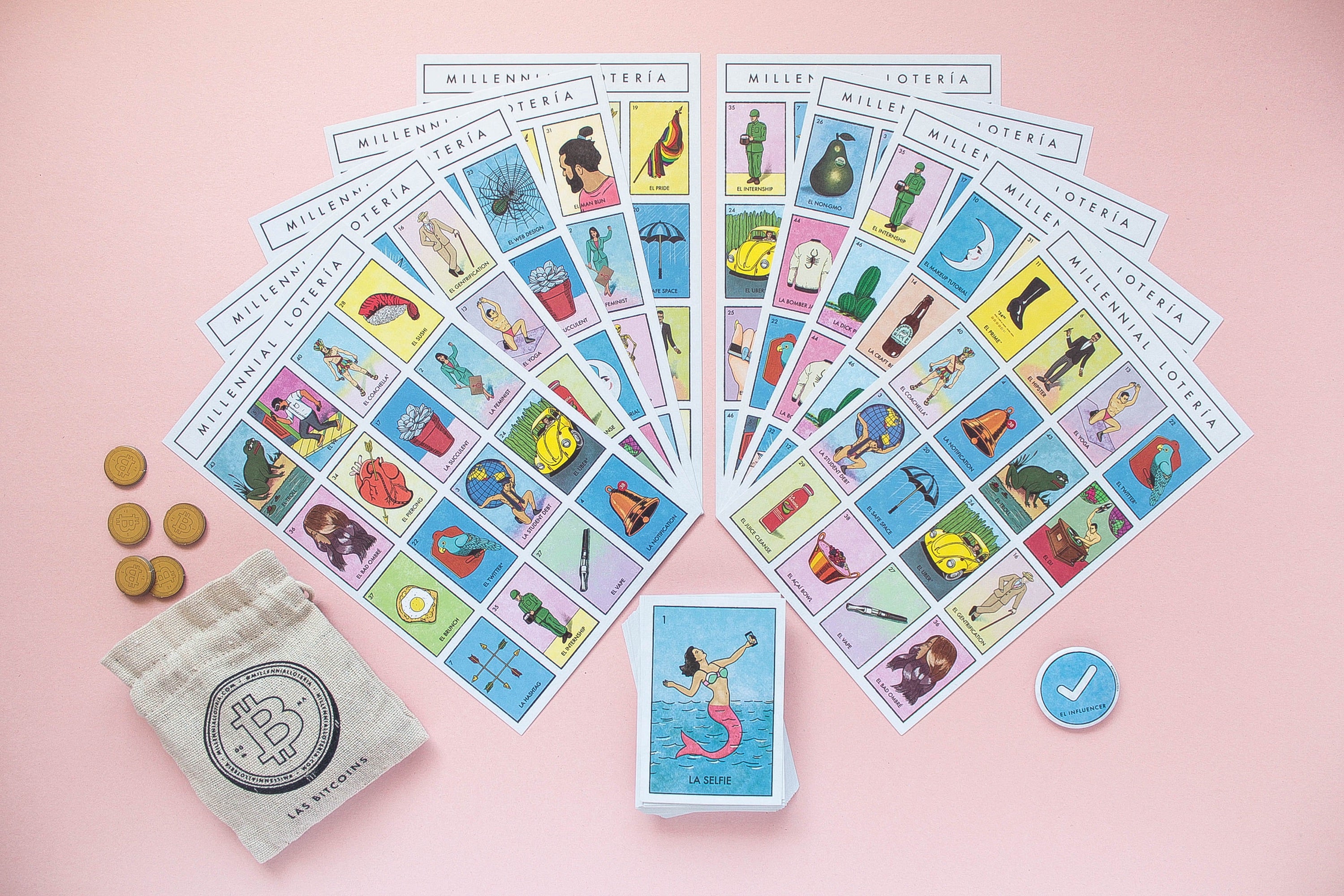
Alfaro has since decided to quit his full time job in advertising to focus solely on the game. Another challenge Guillén says the game faced at first was the criticism from people who didn’t agree with this modern version and felt like the traditional version was getting erased.
“I am not changing Lotería or the generation,” Alfaro said. “I am reflecting that the world has changed. I am putting a mirror to show our generation and how it has changed. What I’m doing is keeping this tradition alive. I don’t want Lotería to become something that only exists in museums.”
Alfaro hopes his game can help change the narrative that all Latinos are monolithic. He hopes that those who play the game can relate to the cards today, just like he did when he was younger. Cards like “el gender reveal,” “la student debt” and “el uber” are new cards that connect more with today’s culture and can create entertainment, but also conversations between younger and older generations.
“Millennial Lotería is a lot about learning how to embrace who you are and having ownership of your culture,” Guillén said. “I think a lot of us that are bicultural in the United States try to push away our culture growing up.”
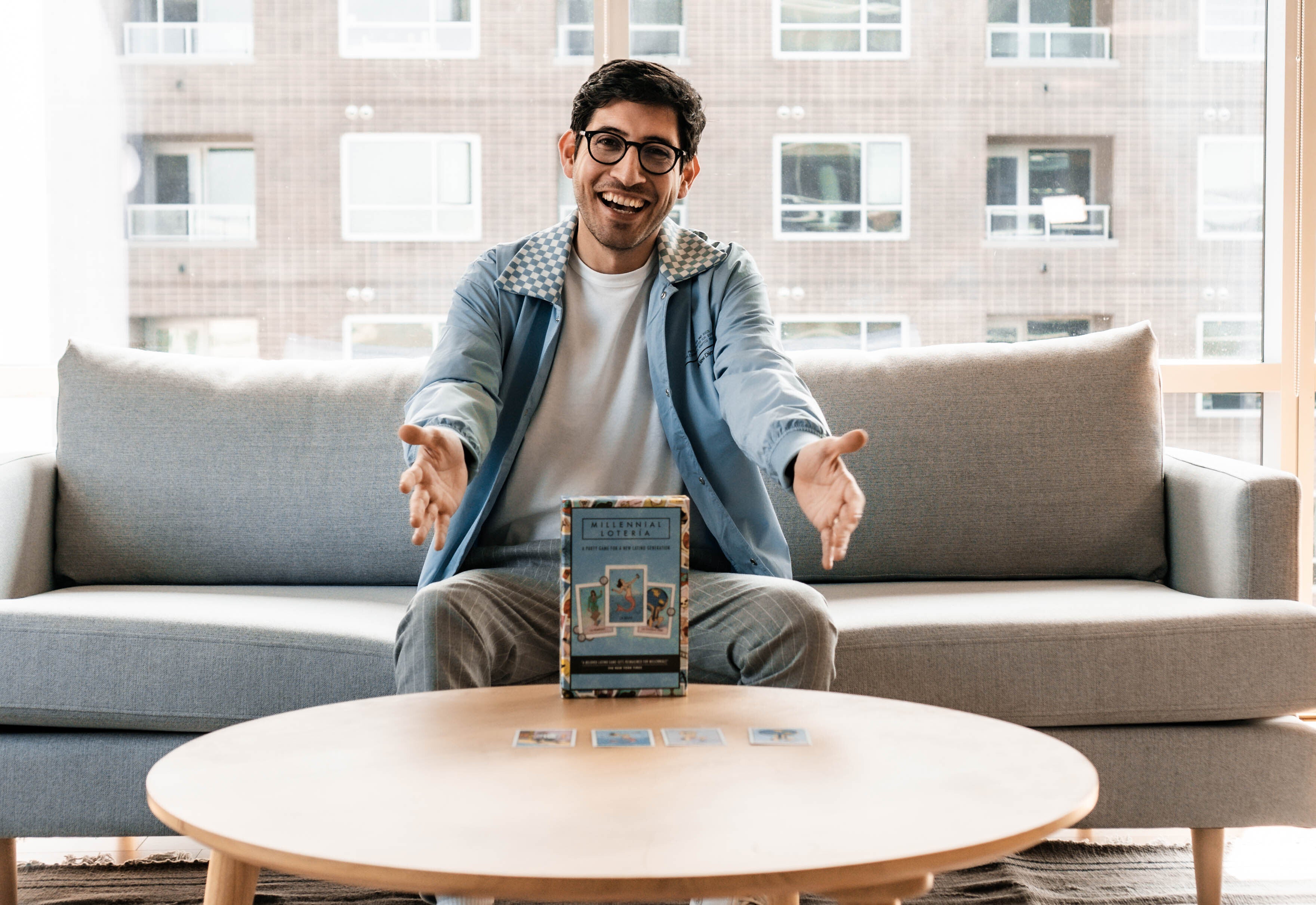
Both Guillén and Alfaro feel that a game like Millennial Lotería allows there to be a combination of both cultures, where one does not have to be American or Hispanic enough to fit in and join the game.
“There are a lot of people in the United States that are Latinos that feel in between two worlds,” Alfaro said. “For me, Millennial Lotería is a way for both of these parts to unite. One of the main messages from the Lotería is that there is not one way to be Latino.”
Millennial Lotería does not stop at the game. Alfaro has been able to successfully launch the brand on social media, where he hasover 300,000 followers on Instagram and TikTok combined. Millennial Lotería has even partnered with Disney to promote “Encanto” and with Warner Brothers to promote “Suicide Squad.” Some upcoming projects for Millennial Lotería include a “Y2K” version, an exclusive clothing line for Hispanic Heritage Month in Target and a digital version set to release at the end of this summer.
“The purpose that I want to give people is to make them laugh and have a good time,” Alfaro said. “I have a responsibility that I feel in making people’s days a bit happier with the game or with videos I make on TikTok.”

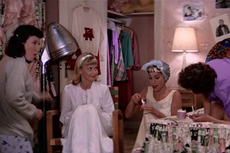





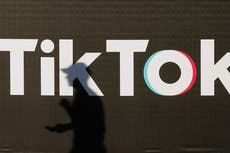

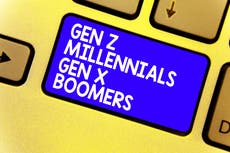


Bookmark popover
Removed from bookmarks